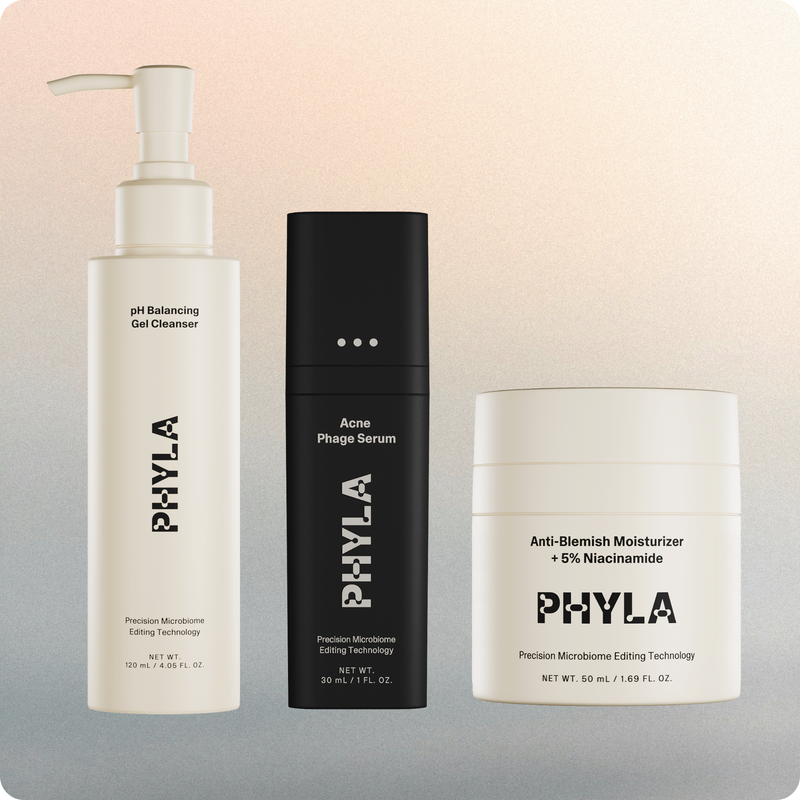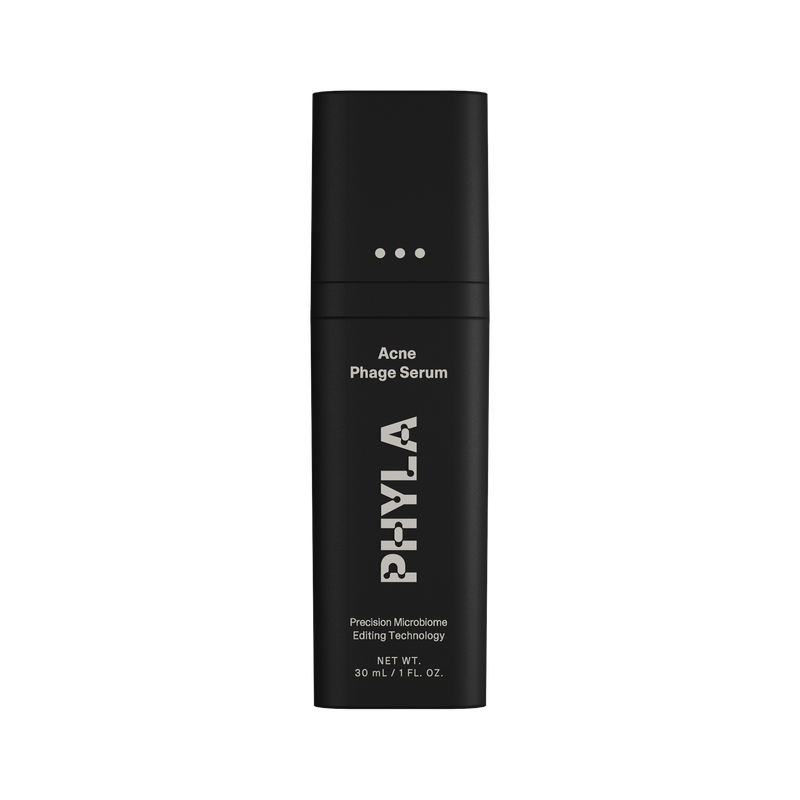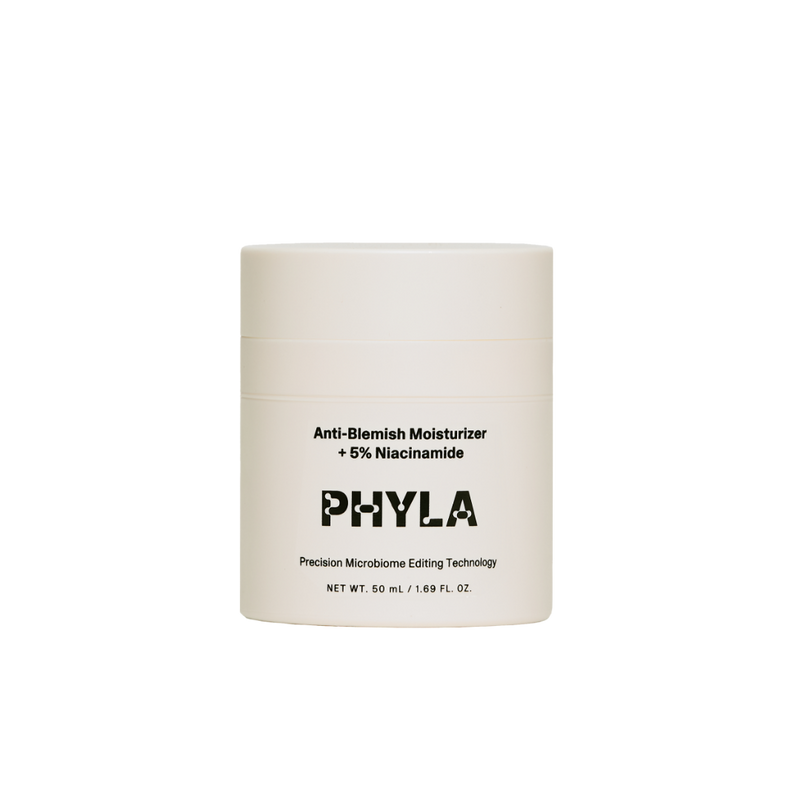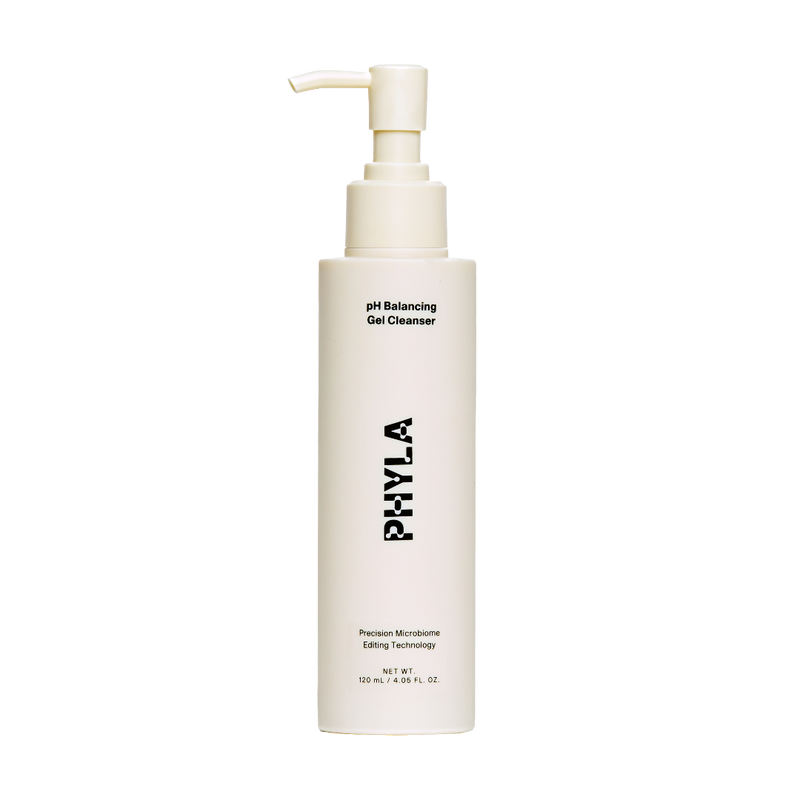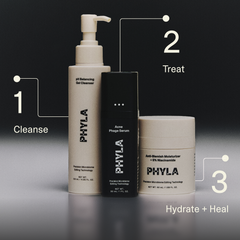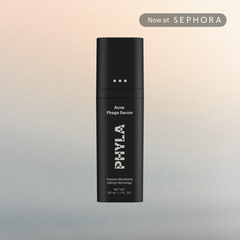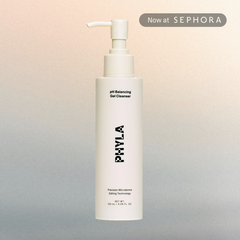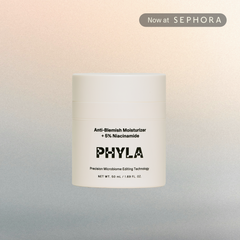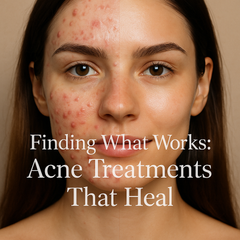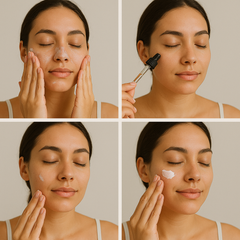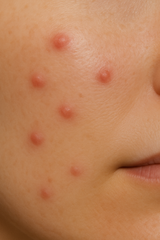Probiotics for Acne: Are They the Secret to Clearer Skin?
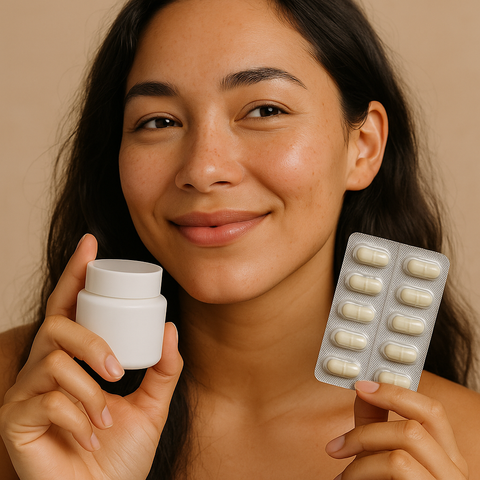
Yes, probiotics can help improve acne by restoring balance to your microbiome. When your gut and skin microbiomes are healthy, your body is better able to reduce inflammation, regulate oil production, and keep acne-causing bacteria in check.
-
Topical probiotics help strengthen the skin barrier and create a more stable environment on the skin. This can be especially helpful if you’re dealing with hormonal acne, recurring breakouts, or damage from harsh treatments.
-
Bottom line: probiotics aren’t just a trend. They’re a science-backed way to support clearer, calmer skin from the inside out.
What Are Probiotics, Really?
Probiotics are live, beneficial bacteria that naturally exist in your gut and on your skin. When in balance, these probiotics for acne can:
-
Defend against harmful microbes
-
Soothe inflammation
-
Enhance nutrient absorption and hydration
They’re known for gut health—but can probiotics help acne? Absolutely. They work in two key ways:
|
Type |
What It Does |
|
Oral Probiotics |
Improve gut health → reduce inflammation + oil production |
|
Topical Probiotics |
Balance skin’s microbiome → soothe, protect, and clear skin |
Why Your Skin Microbiome Matters
Your skin has its own microscopic ecosystem—a diverse community of bacteria, fungi, and viruses known as the skin microbiome. The health of your skin microbiome is closely linked to gut health and skin appearance. When this delicate balance is maintained, microbiome skin care helps keep your skin resilient, calm, and clear.
However, disruptions to this balance—caused by antibiotics, harsh cleansers, stress, or dietary choices—can negatively impact both gut health and your skin microbiome. When the microbiome becomes imbalanced, it can show up as:
-
Hormonal acne
-
Cystic acne
-
Fungal acne
-
Rosacea, eczema, or rashes
How Do Probiotics Help Acne?
If you're wondering how do probiotics help acne, here’s how it works:
Internally (via supplements or fermented foods):
-
Calms systemic inflammation
-
Reduces oil production
-
Improves nutrient absorption and hormonal balance
Topically (via skincare):
-
Targets C. acnes, the bacteria behind many breakouts
-
Rebalances skin’s pH levels
-
Strengthens your barrier to defend against triggers
This makes probiotics for cystic acne, hormonal acne, and fungal acne a promising option—especially if you’ve tried harsh treatments that left your skin irritated or stripped.
Can Probiotics Cause Acne?
It’s a fair question—especially if you’ve experienced breakouts after starting probiotics.
Here’s what to know:
-
Some people may experience skin purging (temporary flare-ups as your microbiome adjusts)
-
Irritating formulas or the wrong bacterial strains may trigger a mild rash or breakout
-
Poor-quality products with fillers or preservatives can do more harm than good
So if you’re asking can probiotics cause fungal acne or cystic acne, the short answer is: unlikely—but choose wisely, and give your skin time to adapt.
Benefits of Probiotics for Skin ✓
Here’s what balanced, probiotic-powered skin can look like:
1. Clearer, Calmer Skin
Probiotics ease inflammation—the root of most breakouts. Whether you’re dealing with itchy acne, chin acne, or deep cysts, calming the skin from the inside out makes a difference.
2. A Stronger Skin Barrier
When your skin barrier is damaged, you’re more vulnerable to dryness, irritation, and infection. Probiotics help seal in moisture and keep out irritants.
3. Hydration + Balance
Especially helpful for dry skin, eczema, or rosacea, probiotics help regulate oil and soothe sensitivity.
4. Gentle Anti-Aging Support
Some probiotics produce lactic acid, which naturally exfoliates and improves skin texture—reducing dullness, fine lines, and sun damage over time.
How to Use Probiotics in Skincare
Want to restore your skin microbiome naturally? Start with a minimal, microbiome-safe routine.
Look for products that are:
-
Free from alcohols, antibacterials, and harsh preservatives
-
Infused with live or bioactive strains
-
Labeled “microbiome-safe” or “phage-friendly”
A Science-Backed Option: Phyla
One microbiome-forward brand using real science to target breakouts is Phyla. Their approach centers around a breakthrough live ingredient: the C. acnes bacteriophage.
This phage is a beneficial virus that only targets acne-causing bacteria—without harming your skin’s healthy flora.
Here’s how their system supports your skin:
|
Product |
What It Does |
|
Acne Phage Serum |
Targets acne-causing bacteria at the source without disrupting your microbiome |
|
pH Balancing Gel Cleanser |
Gently cleanses with tea tree + salicylic acid while preserving skin balance |
|
Anti-Blemish Moisturizer |
Lightweight hydration with 5% niacinamide to soothe and support barrier repair |
Are Probiotics Good for Acne?
Yes—when used correctly, probiotics help reduce acne, calm inflammation, and rebuild your skin’s defenses from the inside out.
If your current routine isn’t working, consider taking a microbiome-first approach. Your skin—and gut—might thank you.
Curious to try a microbiome-friendly routine?
Explore what science-backed skincare looks like with Phyla’s probiotic-powered acne system.
No pressure—just information that helps you take care of your skin with clarity and confidence.

